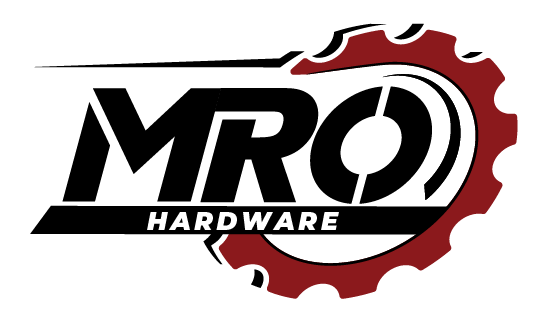In industrial settings, hardware quality directly impacts how well operations run. We regularly see that companies using high-quality hardware experience fewer breakdowns, less downtime, and better overall performance. Quality hardware is not just a purchase but an investment that improves operational efficiency and reduces long-term costs through fewer replacements and repairs.

Quality control plays a crucial role in ensuring hardware meets strict standards before deployment. When manufacturers focus on quality management, they produce components that withstand harsh industrial conditions and maintain performance over time. The durability of these parts means machines run longer without issues, allowing companies to maintain consistent production schedules.
Today’s industrial technology demands precision components that can integrate with advanced systems. We find that quality hardware supports these technological requirements while adapting to future innovations. Companies that prioritize hardware quality create a foundation for reliable operations that can evolve with changing industry demands.
Key Components of Industrial Hardware
Industrial hardware forms the backbone of manufacturing facilities and production environments. The right components ensure smooth operations, extend equipment life, and maintain workplace safety.
Understanding High-Quality Hardware
Quality industrial hardware starts with proper materials and manufacturing processes. High-grade metals like stainless steel and specialized alloys offer superior durability in harsh environments.
Components like bolts, connectors, and fasteners might seem small, but their quality directly affects system integrity. We’ve found that premium hardware withstands temperature fluctuations, chemical exposure, and continuous vibrations much better than standard options.

Compatibility between components is essential for optimal performance. Industry standards ensure interchangeability and reliable connections between different parts and systems.
Quality control in hardware manufacturing involves rigorous testing and inspection. This includes dimensional checks, material verification, and stress testing to identify potential defects before installation.
Impact of Hardware on Operational Efficiency
Hardware quality directly affects production uptime and efficiency. Well-made components require less frequent replacement, minimizing costly downtime and interruptions.
Strategic hardware selection can significantly improve manufacturing processes. For example, selecting appropriate sensors and controllers ensures accurate data collection and precise operation control.
Maintenance becomes simpler with quality hardware. Standardized components with reliable performance reduce troubleshooting time and simplify inventory management.
Technology integration has enhanced industrial hardware capabilities. Modern components often include smart features for monitoring performance and predicting maintenance needs before failures occur.
A robust quality management system ensures continuous improvement in hardware selection and implementation. Regular reviews help identify opportunities for efficiency gains through hardware upgrades.
Safety and Reliability of Industrial Systems
Safety in industrial environments depends heavily on hardware reliability. Critical components must function correctly under all operating conditions to prevent accidents and protect workers.
Failure analysis shows that hardware malfunctions contribute to many industrial incidents. We emphasize using certified components that meet or exceed safety standards for all critical applications.
Regular inspection and maintenance of key hardware components helps identify wear patterns before catastrophic failures. This proactive approach maintains system reliability while extending equipment lifespan.
Documentation of hardware specifications and maintenance history improves troubleshooting efficiency. When issues arise, having detailed information about installed components speeds resolution and reduces downtime.
Upgrading outdated hardware often delivers significant safety improvements. Modern components typically incorporate design features specifically engineered to enhance operational safety and reliability.
Technological Advancements and Process Optimization
Modern technology has revolutionized the way industrial operations manage quality hardware and optimize processes. These advancements not only improve efficiency but also enhance product quality while reducing costs.
Influence of Technology and Automation
Automation has transformed industrial operations by reducing human error and increasing production speed. Smart machines equipped with sensors can detect defects that might be invisible to the human eye, ensuring higher quality standards.
Artificial intelligence systems analyze patterns in production data to identify potential issues before they cause major problems. This predictive capability helps prevent costly downtime and maintains consistent quality.
Real-time monitoring tools allow factory managers to track equipment performance continuously. When hardware components show signs of wear, these systems trigger alerts so teams can replace parts before failure occurs.
Remote monitoring capabilities have become essential for modern operations. They enable teams to oversee critical systems from anywhere, improving response times and reducing the need for on-site personnel.
Strategies for Minimizing Disruptions
Regular predictive maintenance schedules based on data analysis reduce unexpected breakdowns. By replacing hardware components before they fail, companies avoid costly emergency repairs and production interruptions.
Testing protocols should be implemented for all new hardware before full integration. This prevents incompatibility issues that could cause system-wide failures.
Scalable systems that can grow with your operation help avoid disruptive overhauls. Good hardware choices today should accommodate tomorrow’s expansion needs.
Security measures must protect both physical hardware and digital systems. Multi-layered security protocols prevent unauthorized access that could compromise operations.
Data recovery plans ensure business continuity even when hardware fails. Regular backups and redundant systems maintain critical information and minimize downtime.
Enhancing Quality through Supplier Engagement
Building strong relationships with hardware suppliers leads to better quality outcomes. Regular communication helps suppliers understand your specific operational requirements.
We recommend creating clear quality specifications for all hardware components. These standards should be shared with suppliers to ensure they deliver products that meet your needs.
Involving suppliers in innovation discussions can yield valuable insights. Their specialized knowledge can help identify new hardware solutions that improve efficiency.
Periodic supplier audits verify adherence to quality standards. These reviews should examine both the hardware itself and the manufacturing processes behind it.
Cost savings emerge naturally from strong supplier partnerships. Trusted suppliers often provide better pricing, priority service, and advance notice about new technologies that could benefit your operation.

